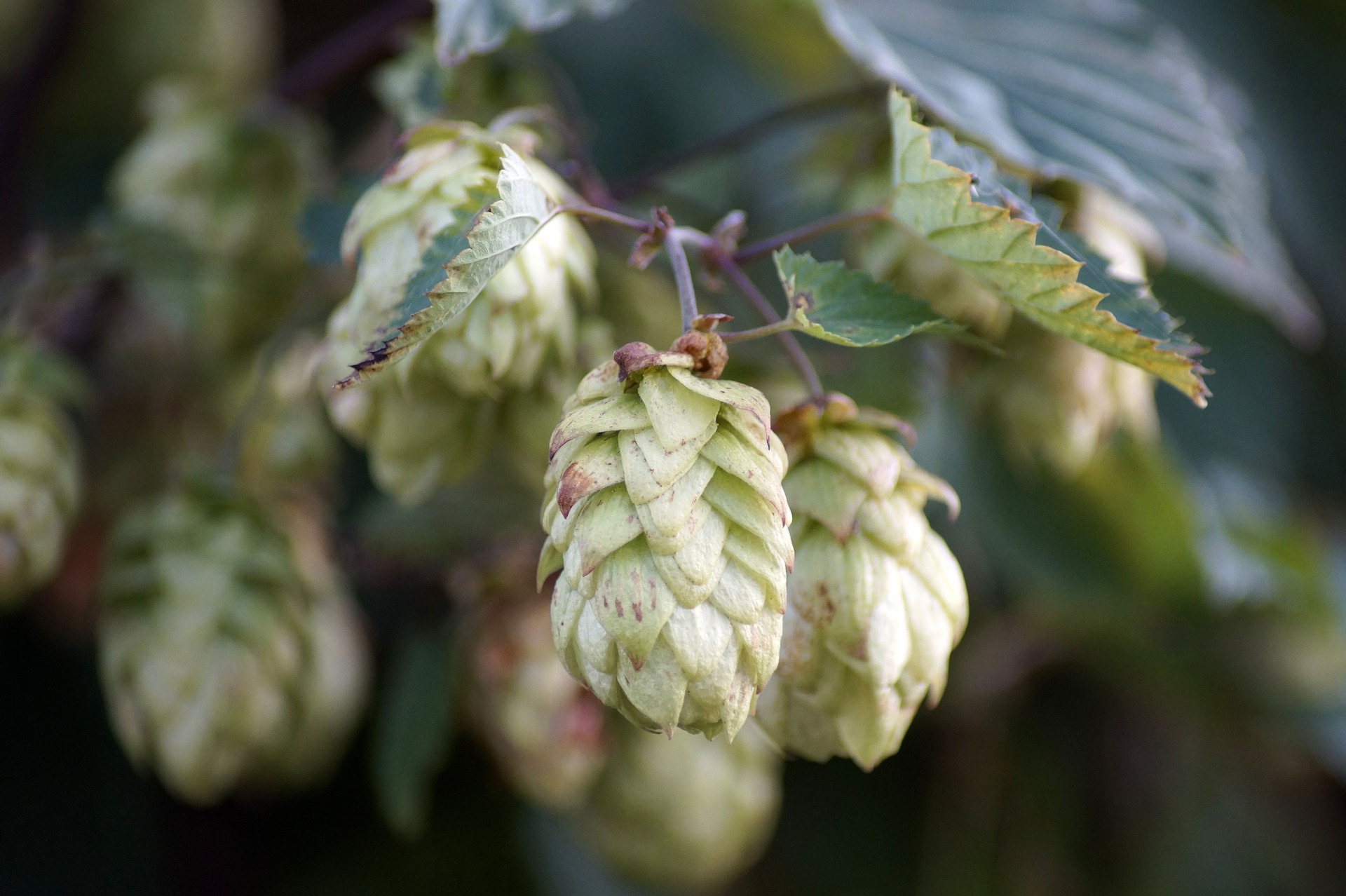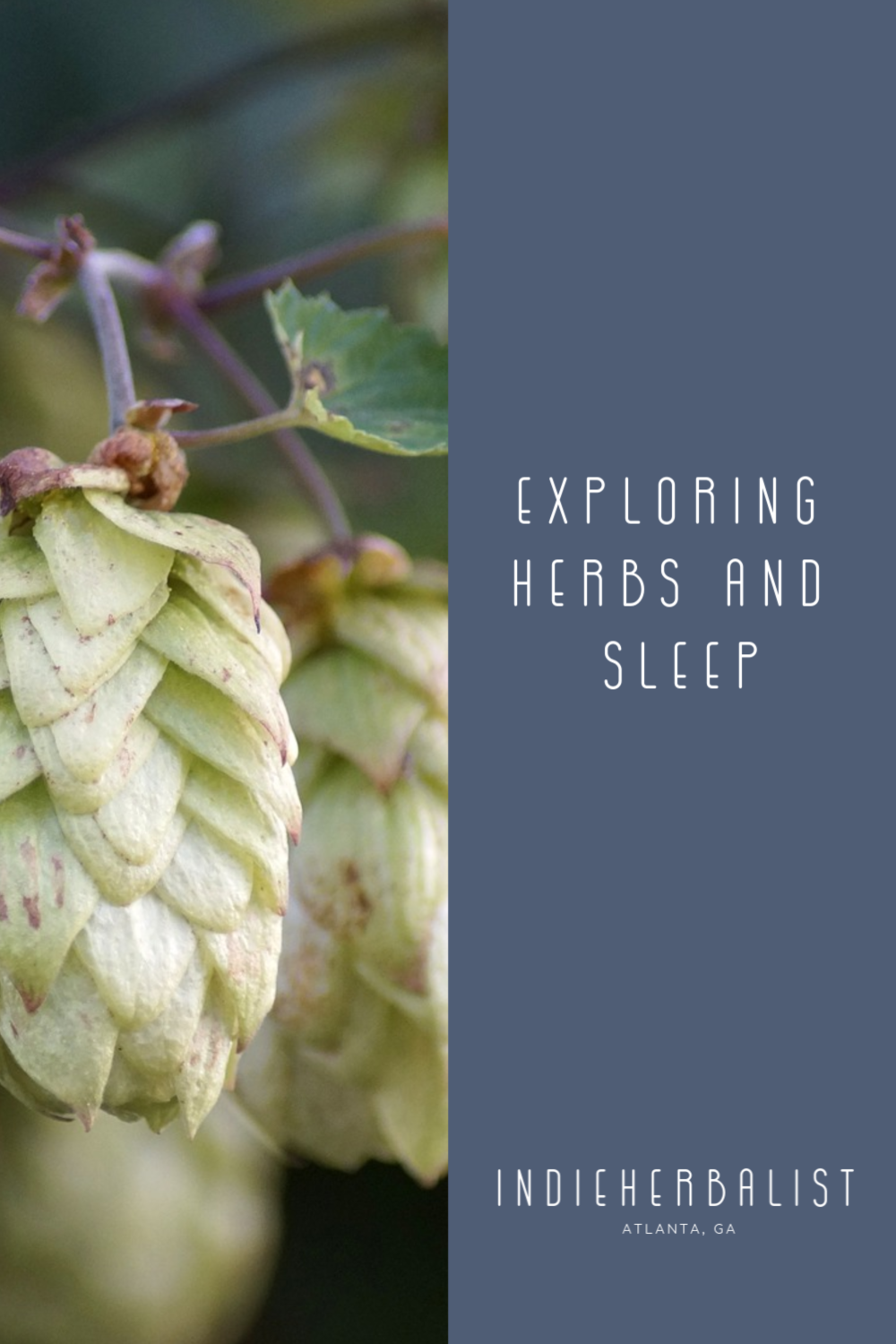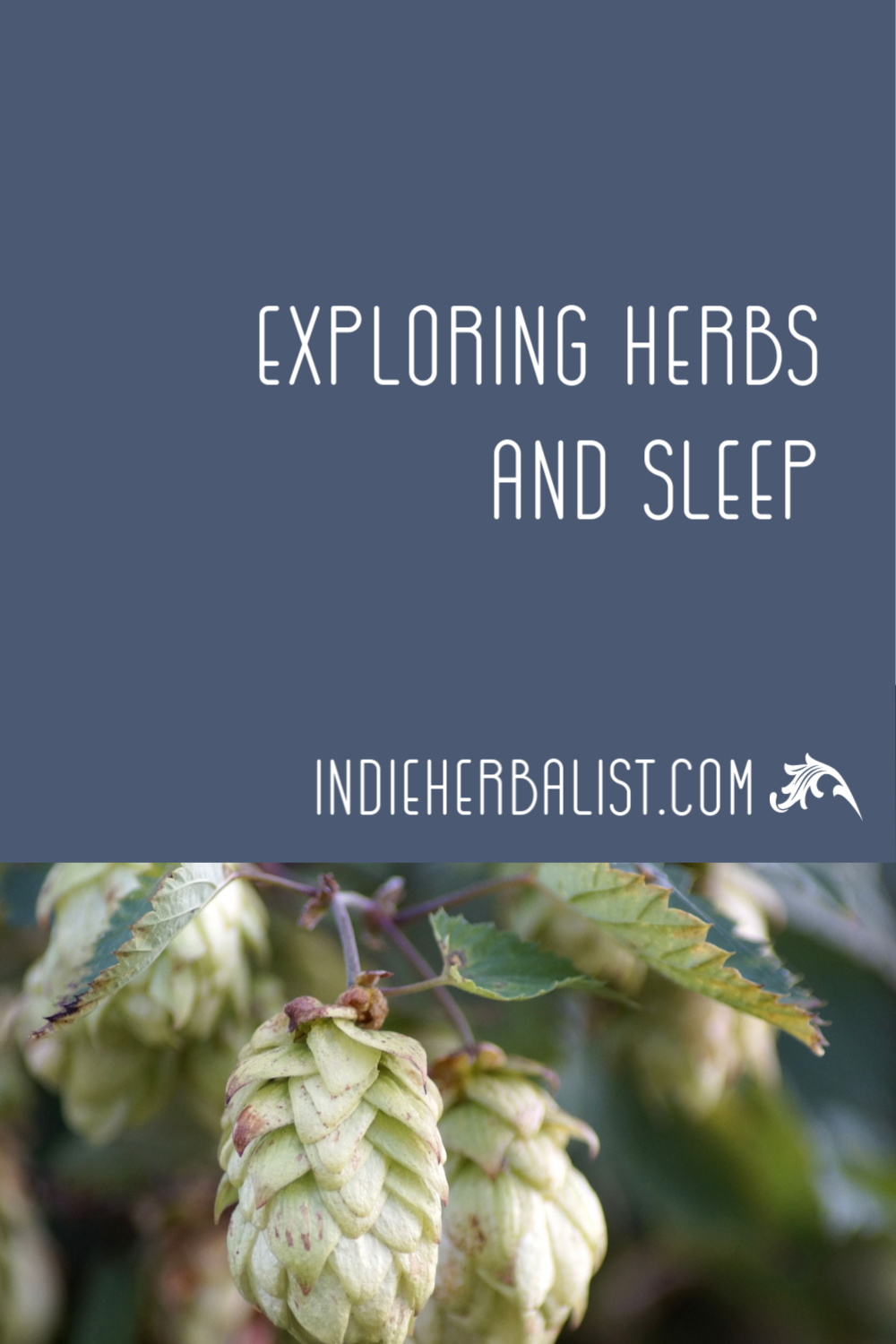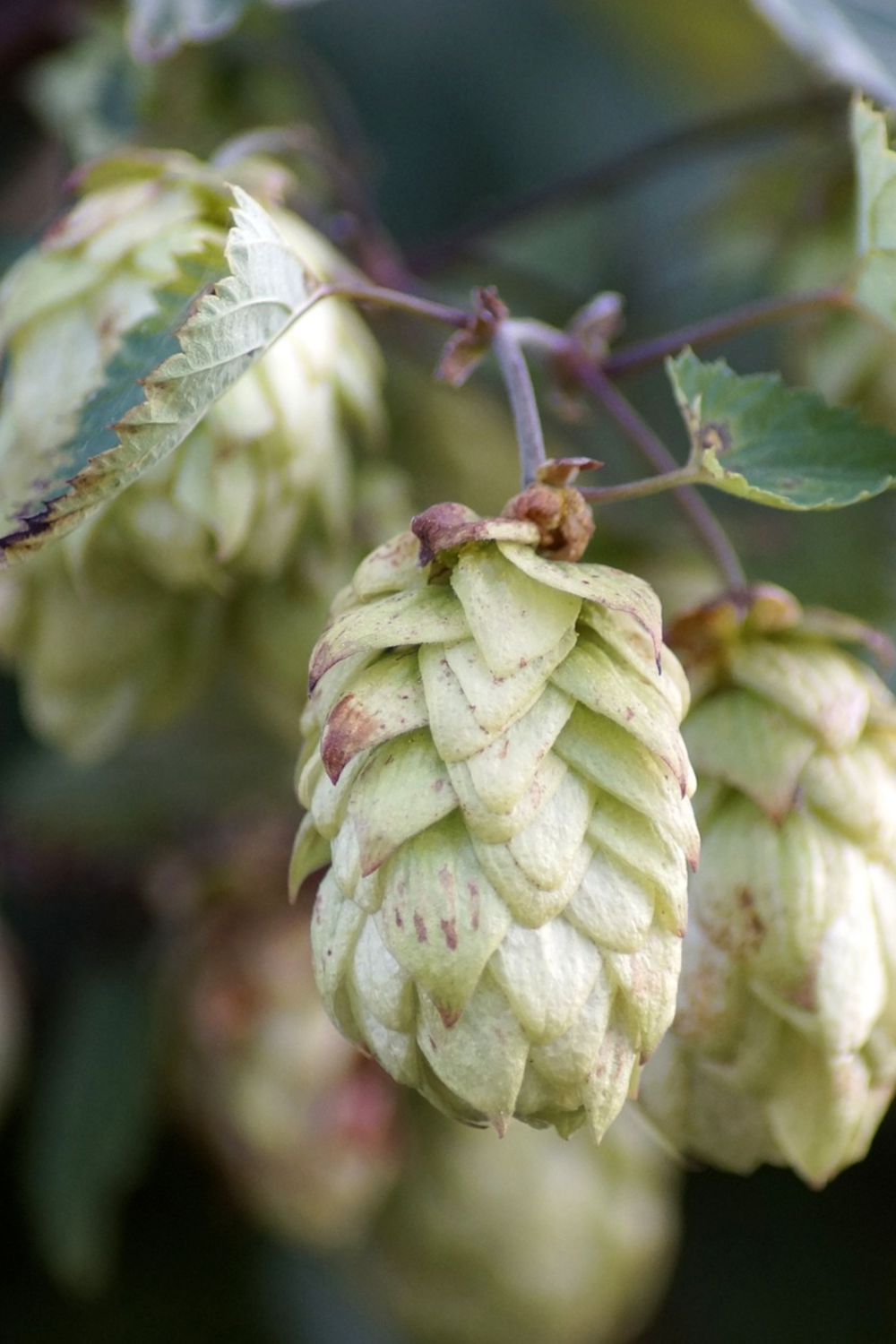Links contained in this post and elsewhere on my website may include affiliate links. When you make a purchase through these links, I earn a commission at no additional cost to you. I only link to products and services that I love - and that I think you will love, too!
If you’re like me, stress can make you lose sleep. . . but if you’re not getting enough sleep you are probably feeling even more stressed! Here’s a little overview about herbs and sleep, including how I work herbs into my evening routine to make sure I’m getting a restful night.
Foundations for restful sleep
Herbs and sleep actually aren’t the first thing to consider if you’re not sleeping well. According to Mayo Clinic there are quite a few simple lifestyle changes that can make a difference. Let’s take a look at three important things that can encourage a good night of sleep.
A regular schedule
If you’re like me, a regular schedule is really hard to keep. Especially if you do a lot of shift work or have littles at home that are less than thrilled about bedtime, your routine can change from day to day. But it’s important to let your body find as much of a natural rhythm as possible. That way, all of the important brain chemicals and hormones that help you get ready for bed can do their thing.
This is a great example of when herbs can help you change gears when it’s getting close to bedtime, especially when a wildly fluctuating schedule just can’t be helped. At the very least, try to establish a bedtime routine that can help cue your body that it’s time for bed even if you must keep odd hours.
Turn down the lights
Did you know that bright light can actually cue the body to feel awake by stimulating parts of the brain that regulate hormones and body temperature? It’s true. And before you protest that you always go to bed after the sun goes down, realize that bright TV, cell phones, and computer screens can have the same impact! So a little screen free time in the evening can be a good idea.
Get comfy
Physical discomfort, even if it’s not more obvious distractions like pain, can keep you sleepless. Do what you can in the way of blankets to stay warm or cool enough, find pillows that don’t give you a crick in the neck, and try to set good boundaries on polite behavior from pets, children, or significant others that share your sleeping quarters.
Try to avoid eating a lot just before bed. Your stomach may not be very happy that the rest of you is trying to wind down while it still has a lot of work to do. A fan or a white noise machine can help block out sounds from inconsiderate neighbors, and light blocking curtains can help keep out headlights from cars on the street corner or from flood lights or security lights.
Some of my favorite herbs for sleep
Now that we’ve taken a look at some of the lifestyle changes that you can make to help you sleep better, let’s look at herbs and sleep. These botanicals can be particularly helpful as part of an evening routine. Nervines are the best general category of herbs to work with in this case, but specifically a class of nervines known as hypnotics. Hypnotics are a traditional class of herbs that support a healthy night’s sleep in a more specific way than other nervines.
They are not as potent as a pharmaceutical sleep aid, but some sensitive individuals may feel better if they start with a lower serving size and work up to the average amount if needed to avoid feeling a little groggy in the morning. I’m definitely one of those sensitive people, and I find that I respond better to herbal blends rather than using herbs as simples in this case. At the end of this article, I’ve included links to my favorite bedtime tea and herbal supplements.
It’s important to remember that everyone is an individual. To determine the best amount of an herbal supplement to use, check the label on the product, look up the herb in a trustworthy reference book, or talk with a knowledgeable herbalist.
Chamomile
Matricaria recutita (syn. Matricaria chamomilla)
Chamomile has a reputation for being especially helpful when you are feeling fussy and restless. According to Sharol Tilgner in Medicines from the Heart of the Earth a specific mental picture for chamomile is “acting like a baby and can’t be comforted.” Chamomile is traditionally considered safe for children, too.
Safety: may cause vivid dreams or nightmares in some individuals. This is an Asteraceae family plant, so if you have allergies to other plants in that family be aware that chamomile may cause an allergic reaction as well.
Hops
Humulus lupulus
Hops is an herb with a very bitter flavor. It was used by herbalists in the late 1800s for insomnia from worrying or anxiety. This herb may be a good choice when there is a lot of physical tension accompanying sleeplessness.
Safety: avoid using with sedative medications. May not be an appropriate herb for someone with depression because, according to herbalist David Hoffmann in his book Medical Herbalism, it “may accentuate this mood state.”
Valerian
Valeriana officinalis
Valerian is infamous for the smell of its roots. Most people will either love or hate the way valerian smells and tastes – there seems to be very little middle ground! Like hops, it’s very good at relaxing physical tension as well as promoting restful sleep, but valerian tends to be more warming whereas hops has a cooling effect.
Safety: don’t use with prescription sedatives or sleeping medications. Valerian may make some people feel more awake rather than calm so it can be good to start with a lower amount and see how you respond.
My herbal evening routine
Typically, I use an herbal tea or extract as part of my evening routine. If I decide on tea, I make sure to finish sipping it about an hour before bed. Sometimes extra liquids right before bed do the opposite of letting you get a good night’s rest. This is especially true of chamomile, which was traditionally used as a mild diuretic!
One of my favorite evening-routine herbal teas is Pukka Tea’s Night Time blend. (#affiliate) It does contain valerian, FYI. However, it has a mild, sweet taste and really makes a difference in my ability to slow down my usual mental chatter and be ready to drift off at bedtime.
WishGarden herbs has some of my favorite extract blends to get ready for bed. One of the really wonderful things about WishGarden is that their products are a blend of glycerin and alcohol extracts (so they taste better than straight alcohol extracts) and they come in a convenient pump-top that’s easier to use than dropper bottles.
Sleepy Nights is a simple blend of hops, skullcap, and passionflower that’s perfect for a calm herbal evening. I also really enjoy Liquid Bliss. Liquid Bliss has cottonwood, damiana, hawthorn, and passionflower, so unlike the Sleepy Nights I can also use it during the day if things have been particularly stressful.
Here are my affiliate links to both of those products, or you can click the banner below to visit the WishGarden online store.
Learn more about herbs and sleep
One of my favorite online herb schools has some excellent articles about herbs and sleep. They also have a wonderful course called Herbal Self-Care for Stress Management (#affiliate) that’s really helpful. Enjoy their free articles below!
7 Herbal Remedies for Better Sleep (#affiliate)
Lifestyle Hacks for Sound Sleep (#affiliate)
Herbal Sleep Cycling: How to Create Your Own Protocol (#affiliate)
Herbal Insomnia Options (#affiliate)
Photo credit: pixabay






